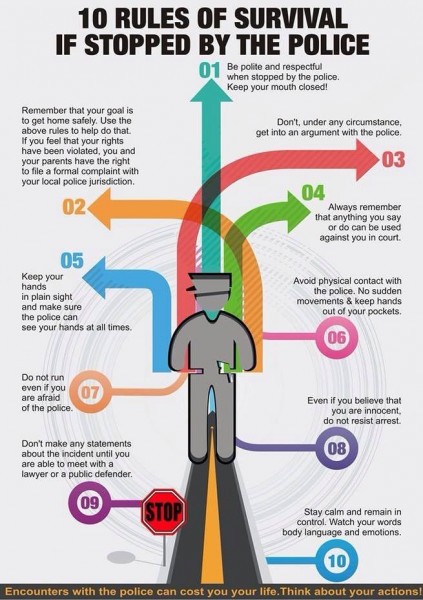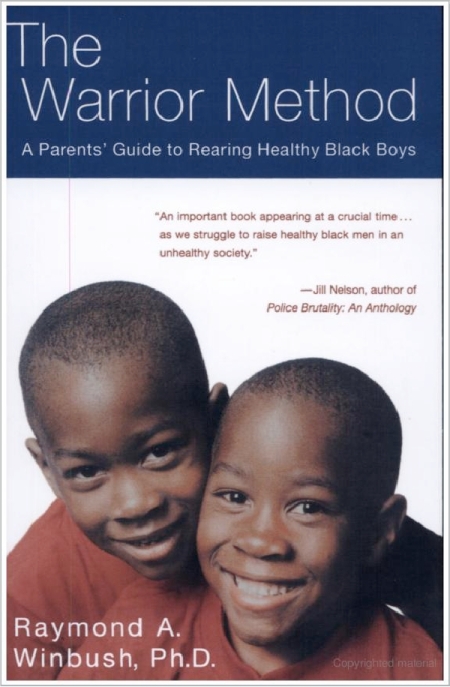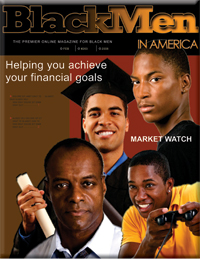
By Vanessa Werts
Across America, in the inner-city and in suburbia, single mothers struggle with raising boys alone. This issue has clearly emerged as one of the most consequential trends facing society today. And David Miller, co-author of the book, Raising Him Alone, is on a personal mission, standing watch, doing his part to support single mothers – Black single mothers in particular – and the positive development of Black males.
During my interview with Miller at the 2010 National Congressional Black Caucus Book Pavilion, his passion was contagious. Miller’s vision is for the well being of everyone involved in the struggle from the son to the mother or caregiver to the absent-father alike. Therefore, it is only natural that he would be co-founder of the Raising Him Alone Campaign, a national movement that executes the foundational principles he and co-author Matthew P. Stevens address in their book [Raising Him Alone].
Single mother parenting was long thought to be primarily an African-American problem, stemming from poverty and poor education. However over the last decade, it has become an epidemic crossing both racial and class lines. “We started the campaign to really focus on Black and Latina moms,” says Miller. “But we get a tremendous amount of calls from White mothers. The issue is beyond an epidemic.”
Miller shared with me insights about the book, the campaign, and the community activities and resources dedicated to inspire and inform the millions of single mothers who struggle daily with the challenges of raising boys.

The David Miller Interview
BMIA: What is the Raising Him Alone campaign about?
D. Miller: The campaign is a movement to provide greater access to resources for single mothers and grandmothers throughout this country.
BMIA: Where does your passion for this movement or your connection to this issue come from?
D. Miller: When I was a freshman in college, my best friend was shot and killed standing next to me and I was 19-years-old. I was at Morgan, he was at Morehouse; some guys tried to rob us…they shot my friend in the back and he died in my arms. And since then I’ve dedicated my life to really improving the lives of children and families in this country. And so, I’m real clear that we’ve got to do this work in our communities, or else we’re not going to make it.
BMIA: When does the campaign kick-off?
D. Miller: The campaign kicked-off in January 2009. We did a major launch in two cities: Baltimore and Newark, New Jersey. I invited some dynamic mothers who’ve raised sons to come and help me kick it off. Common’s [rapper, actor] mother, Dr. Mahalia Hines; Mos Def’s [rapper, actor] mother, Sheron Smith; and Talib Kweli’s [rapper, activist] mother, Dr. Brenda Greene. I brought them on-board to help me launch the two cities, and now we’ve expanded to Chicago and Philadelphia. These are our four main cities. But we’re working in communities across this country really doing some very interesting viable Web-based things like using Facebook to create discussion groups with moms. We’re creating a tremendous movement around serious parenting.
BMIA: What has been the response to campaign?
D. Miller: The response has been absolutely overwhelming. We average about forty phone calls and E-mails a week from mothers who are in some of the roughest parts of say, maybe Memphis, DC, or Newark, New Jersey, to moms that have MBA degrees, PhD degrees from excellent colleges and universities, who got divorced and for whatever reason, dad hasn’t stepped up. And so it’s been an amazing cross-section of parents from different socioeconomic backgrounds.
BMIA: Have you in any way included fathers in the campaign?
D. Miller: Yes. Historically, my background is I’ve written two other books about responsible fatherhood. And so, year one was really to launch the campaign and raise money. Year two has really been focused on launching the largest responsible fatherhood Web site you’ll find in this country which we’re gonna try to connect it with President Obama’s Responsible Fatherhood Initiative. I was in Washington three weeks ago speaking to all of the federal grantees that received responsible fatherhood money. The Web site is going to be for any dad: married dads, divorced dads, military; dads that are incarcerated, to really talk about what does it mean to be an exceptional father. And so dads are an integral part of the campaign.
BMIA: What type of information can single mothers expect from the book, Raising Him Alone?
D. Miller: In the book, we kind of roll out a blueprint of how to raise a son, as well as things like mentoring. Susan Taylor has a national initiative; Michael Baisden has a national initiative on mentoring. The reality is in all those initiatives, we’ve not gotten enough black and brown men to sign up and honor their commitment. So one of the things we talk about is, while we’re trying to find a mentor for the boy, there’s things mom has to do in the home. For example, number one is the boy can never be the man of the house. That’s a mistake that I think mothers make, particularly as boys get to adolescence. Moms say you’re the man of the house because your father is not here. And what happens with a lot of boys is they think because dad’s not here I need to step up and bring money in. So a lot of boys will start steeling cars, selling drugs… You start to see a lot of pathologies exist because mom has told this 13-year-old that he’s man of the house. So a lot of what we’re trying to do is really work with community-based organizations and work with schools. We’ve created an awesome learning community so mothers can go to our Web site, sign up and they can receive free text messages, free voicemail message about being a good parent…about financial literacy tips. We send out an e-mail blast that goes out to about 11,000 mothers and grandmothers across the country. We’ve created a Facebook group, Single Mothers Raising Boys, with over 1,000 mothers connected to that. The goal is also connecting mothers to resources, things like mental health; things like credit repair; a lot of stuff on co-parenting. I mean when you look at the divorce rates in our community, we’re in trouble. We’re in serious trouble.
BMIA: Have you had any testimonials on the impact of the work you’re doing?
D. Miller: We’ve had some amazing testimonials. I’ll start with Ms. Mildred, a 74-year-old great-grandmother living in the projects in the West Ward in Newark, raising five boys by herself… hypertension and diabetes. When we went to go interview Ms Mildred, we were able to stop her from getting evicted from her apartment. We were able to connect her to free mental health services for both herself and for those boys. Even though the boys are all under 12-years-old, you started to really see some behavioral challenges with those boys. We can document many of the families that we’ve reached as well as the dads that we’ve reached. And that’s one of the reasons why we decided to create the fatherhood Web site. We met a brother in Michigan whose children lived in Atlanta, Georgia and we were able to re-connect him with his children. Because he was a long distance dad, we were able to work with him and work with the mom to develop some strategies. One of the first things we did was recommend that the dad buy a cell phone and mail it to the boy so the boy could call his dad. But we had to go through the mom to help her work through her own issues because they didn’t get married to say, this is something that can happen. And so, even being able to work through something as simple as communication with the father and son is another example.

The Raising Him Alone Campaign seeks to create a larger community dialogue around the importance of supporting single mothers raising boys. Through partnerships with a host of organizations, they are mobilizing single mothers and absent-fathers to save our future, particularly our boys.
The siren is blaring. The call to engage the issues in raising healthy, positive boys demands our attention. What price will society ultimately play if this trend continues? The clock is ticking.
To learn more about Raising Him Alone, the book, and the work co-founders, David Miller and Matthew P. Stevens are doing with the Raising Him Alone Campaign, visit www.RaisingHimAlone.com.

-
- BMIA.com Reporter Vanessa Werts and David Miller
David C. Miller, M.Ed. is the co-founder and Chief Visionary Officer of the Urban Leadership Institute, LLC, (www.urbanyouth.org) a social enterprise that focuses on developing positive youth development strategies. ULI provides strategic planning, professional development, positive youth development concepts and crisis management services.
Thank you Lee McDonald from The Renaissance Group (TRG) for making this interview possible.

 David Miller is the author of several books, which include Growing Up In a Notorious World (2002), Lessons I Learned from My Father: A Collection of Quotes from Men of African Descent (2004), Dare To Be Queen: Wholistic Curriculum for Working with Girls (2005) and Rhyme & Reason a Hip Hop Curriculum for professionals who work with teens (2005), Daddy’s Girl: Remembering Advice From My Father (2006) Where’s Mommy & Daddy?: A Workbook for Facilitating Groups with Youth Who Have a Parent in Prison (2014). He’s also a graduate of the University of Baltimore with a B.S. Political Science and Goucher College with a Master’s Degree in Education.
David Miller is the author of several books, which include Growing Up In a Notorious World (2002), Lessons I Learned from My Father: A Collection of Quotes from Men of African Descent (2004), Dare To Be Queen: Wholistic Curriculum for Working with Girls (2005) and Rhyme & Reason a Hip Hop Curriculum for professionals who work with teens (2005), Daddy’s Girl: Remembering Advice From My Father (2006) Where’s Mommy & Daddy?: A Workbook for Facilitating Groups with Youth Who Have a Parent in Prison (2014). He’s also a graduate of the University of Baltimore with a B.S. Political Science and Goucher College with a Master’s Degree in Education.![Pageflex Persona [document: PRS0000038_00068]](https://bmia.files.wordpress.com/2014/04/ybm_front-cover.jpg?w=97&h=150)





































HOW TO DESTROY–A BLACK BOY
Posted in African Americans, Black Interests, Black Men, Black Men In America, Ramey Commentaries with tags Black Boys, Mike Ramey on September 1, 2013 by Gary JohnsonBy Mike Ramey
If you kill him in the womb, you won’t have to bother at all.
But, bring him into the world to do the ‘real’ job;
Put him in braids and pigtails by two or three;
IF not married Teach him nothing about Mama’s or Daddy’s lack of sexual responsibility,
IF divorced Tell him his Daddy ain’t nothing (cause Mama will NOT allow him around)–for “You can get your Child Support girl”; Let the courts keep Daddy away, while Mama lies…and ‘hangs’ with her friends and blames…
THIS is the way to destroy–a Black Boy.
If the TV commercials, iPods and iPhones, don’t warp his brain;
Fear not, for some…Mama and Boyfriend are seldom at home; let ESPN raise him!
By third or fourth grade, the system has it made–off him in the shade,
Pumping him full of Ritalin: ADHD, Bipolar, ‘crazy checks’ and mental slavery;
Misteach him about his worth–rewrite Black history: and the ‘superiority’ myth of Black girls…while Pastors are too busy planning ‘yet’ another ‘church’ holiday, doing nothing for Fathers to come home…THIS is the way to destroy–a Black Boy.
Of course…You can and do keep him from church or Bible, Jesus Christ is a ‘white man’s’ tool…don’t need it; Tell him about JW’s, Islam, Mormonism, Hinduism, TM and Yoga! Don’t teach him about right and wrong, or the cop on the beat;
When he’s hauled to juvenile, let him frown and ‘mean mug’; look down and blame
To your guilt…someone else? The social worker, the cop, the court…never you?
Oprah, 50, your soros or fraternity…or the Lodge, your boat trips?
THIS is the way to destroy–a Black Boy.
The preacher can preach, but can’t teach…what Mama and/or Daddy
Should have done at home, by getting married FIRST and cohabiting fast;
But now the committal is past, the shovel of dirt is the last.
Face down in the street…drugs and gun in hand.
And on the East side of town…another male child is born.
The cycle starts again…full of worldliness and sin…instead of joy;
Much to the Devil’s grin.
THIS is the way to destroy–a Black Boy.
AND…look how successful ‘the plan’ has worked!
–©Mike Ramey
Labor Day Weekend, 2013
Share this:
2 Comments »